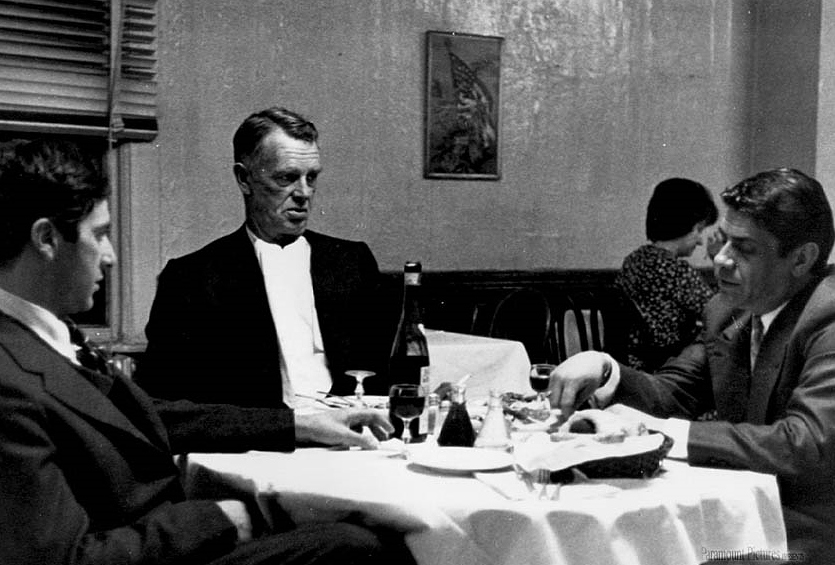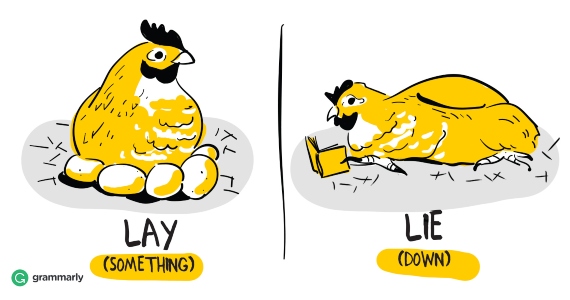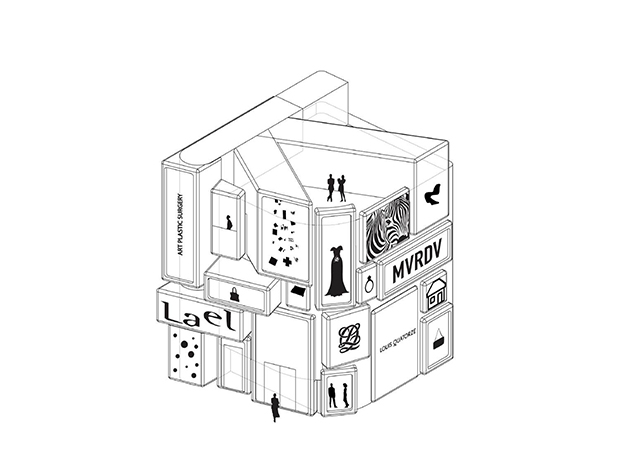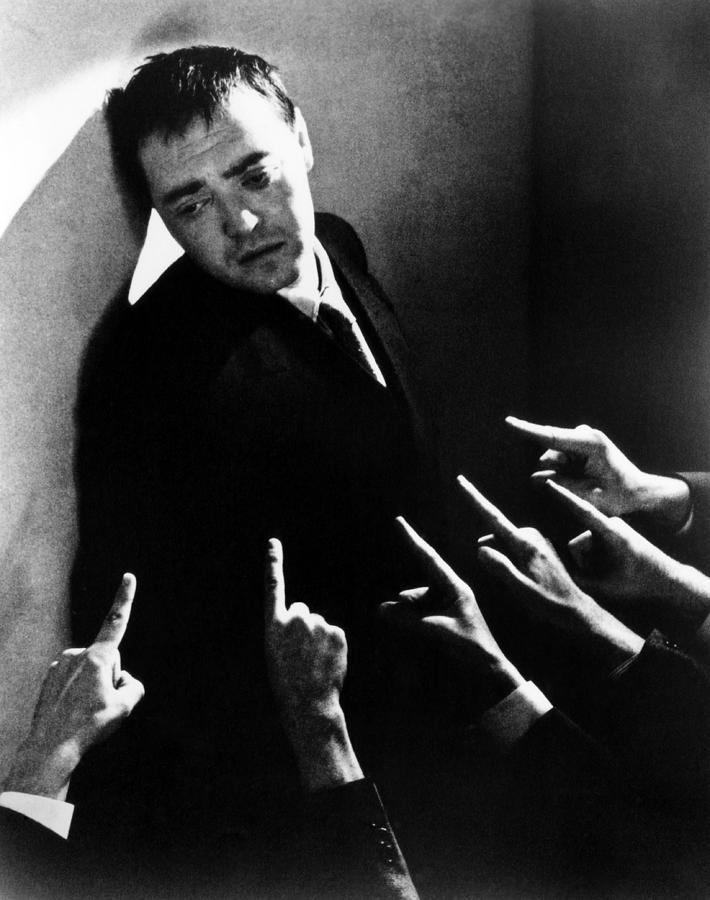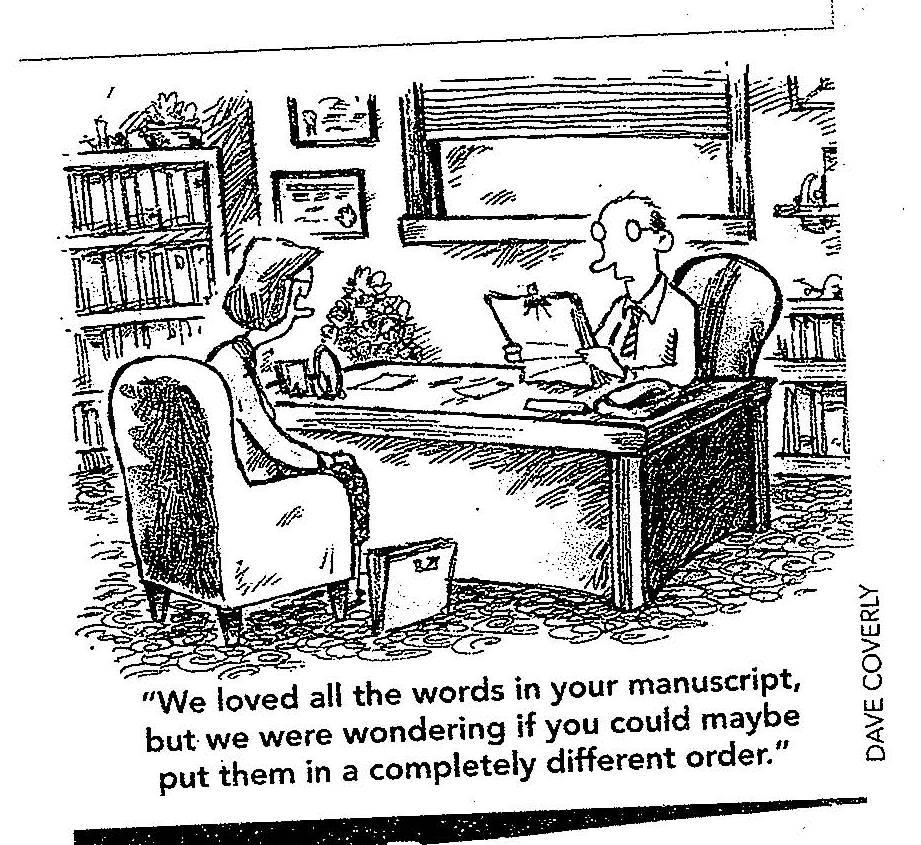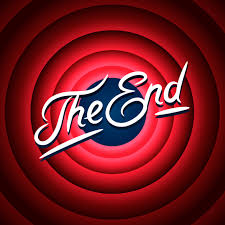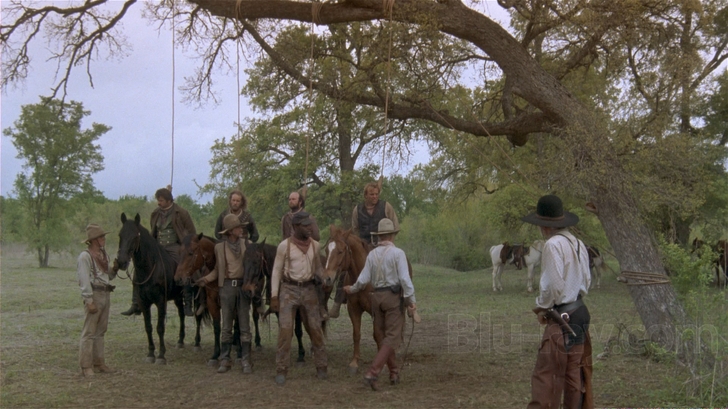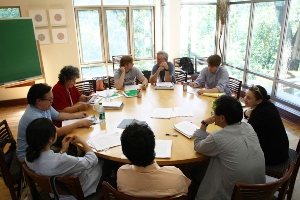THIS WEBSITE WILL BE UNLIKED ON 8-5-20
Spring 2020
Novel Writing Workshop -- WRIT1-CE9357
Meredith Sue Willis Home Syllabus
Various NYU policies Individual Presentation Dates for Critiquing
Check this site frequently for changes in readings
and for optional informationupdated 8-3-20-20
Optional text: Ten Strategies to Write Your Novel by Meredith Sue Willis.
Available from the NYU Bookstore, the publisher, and the usual online suspects.
Good luck to you all with your novels!
MSW
This web page will stay up till @ June 15, 2020 and will likely still be available for awhile after that if you godirectly to https://www.meredithsuewillis.com/nyunovelwriting%20spring%202020.html
Oh, and here's the Hemingway app (thank you, Sebastian): http://hemingwayapp.com .
Current Week
Presentation/Critique ScheduleCheck out Suzan Colón's "Stakes" Method of Outlining
Poets & Writers has a $4.99 Downloadable Book about the Process of Publishing
Interesting ideas from Alexander Chee on how he writes his novels
Here's a link to an article about the former NYU novel class student who has done so well with self- publishing: https://www.pw.org/content/the_savvy_selfpublisher_marlen_suyapa_bodden
You'll notice she puts a lot of resources into the process-- her own money and time among other things.
Do you know these novelists?
See below for names
Some Optional Reading & Announcements
The Best Writing Advice I Ever Received
Nonevaluative Grade Information:
if you don't want a grade, you must follow these instructions.Barbara Kingsolver's five writing tips.
An article by Jake Wolff with about doing research for fiction.
Getting the right spacing between paragraphs in Word
Do you need ideas for starting your novel?
Check out MSW's article online from The Writer
"How to Get a Novel Started."A critique of the workshopping with a silent author by Beth Nguyen
A piece from The Guardian on adverbs
Check out Reedsy.com for free lessons and information
and to hire publishing specialists (and more)Creative writing assignment about one way to get restarted on a project
Piece about getting early readers for your manuscript: don't miss the section on special "sensitivity" readers and the responses in comments!
The Raised Relief Map-- a drafting technique for creative writers
My current favorite opening line of a novel: "Frederick J. Frenger, Jr., a blithe psychopath from California, asked the flight attendant in first class for another glass of champagne and some writing materials."
Charles WIlleford, Miami BluesAnother good one: "Later, as he sat on his balcony eating the dog, Dr. Robert Laing reflected on the unusual events that had taken place within this huge apartment building during the previous three months...."
-J.G. Ballard's High RiseQuirky quotation: "To all the devils, lusts, passions, greeds, envys, loves, hates, strange desires, enemies ghostly and real, the army of memories, with which I do battle—may they never give me peace."
-Patricia Highsmith, diary entryOld fashioned advice: "A novel should give a picture of common life enlivened by humour and sweetened by pathos."
- Anthony Trollope in An Autobiography
NYU WRIT1-CE9357
Novel Writing (Spring 2020)New York University Spring 2020
February 26, 2020 - May 13, 2020
(No class April 8 or 15)
Wednesdays, 6:45 PM - 9:05 PM
Manhattan Village Academy, 43 W. 22nd Street, Room: 242
Instructor: Meredith Sue Willis
E-mail: MeredithSueWillis@gmail.com
Novel Writing Workshop SyllabusBusiness
This class welcomes beginning novelists, but is also aimed at writers who are well-underway on a novel and need further discussion and stimulation to continue or restart. We will cover a lot of basics fast, beginning with a survey of common terms for discussing novels and a look at novel structure in general. If you feel you need more of the basic terminology and ideas, please take a look at the teacher's book, Ten Strategies to Write Your Novel.
During the course, you may bring a total of up-to 50 manuscript pages for critique (some of these pages will be for the whole group, some only for the teacher).
For those with longer or revised manuscripts, this course may be repeated.
This syllabus will be updated regularly online, so please check this web page at least once a week. Access to the website is also available from MSW's home page. Look at the top left.
Please be prepared to discuss the work of classmates when they present. Assignments are optional and go only to MSW. Anything you turn in to MSW, however, including the presentation pieces and optional homework, counts towards the total of 50 pages to be reviewed during the semester.
All writing and presentation selections should be from the novel you're working on.
You will receive a grade for this course unless you request a NonEvaluative mark. For the Non-Evaluative, please see the attached form. A copy of this request must be filed with the department. Send it by e-mail to lc9@nyu.edu.
No letter grade will be given below a B. To earn a B, you must complete 50 pages to the professor's satisfaction plus present work for critiquing by the class at least once. To earn an A, you must complete the 50 pages, present work for critiquing by the class at least twice, show evidence of having done any outside reading, plus participate fully in class discussions.
It should be noted that all NYU policies on academic integrity, i.e., plagiarism, are fully in effect in this course. For various NYU policies, click here.
Disclaimer: Syllabus is subject to change due to current events, guest speaker schedule changes, and/or level and interests of students.
Schedule of Classes
Session 1. 2-26-20
Assignment Due: For the first session, please bring 14 copies of a one page summary or outline of the novel ( if you are just beginning, do this as a hypothesis) plus the first page to give everyone in the class a taste of your prose style. This is a total of two pages (two-sided is fine) with enough copies for the whole class.
Reading Assignment (optional): In Ten Strategies to Write Your Novel, read "Strategy 1: Separate Process and Product."In Class Discussion:
Structure of the course and structure of the novel.
Everything is built with concrete observation and sense details.
Common vocabulary--Process versus product, pacing, when to dramatize, when to elide.
Essential importance of Point of View in all fiction.
Scene and summary. What is Scene? Why is it important? The building block of novels.
How do we evaluate fiction? What do you read? What kind of feedback do you find most useful?
What do you need from this course?
SCHEDULE PRESENTATIONS FOR CRITIQUE.
Session 2. 3-4-20
Writing Assignment due: Write a scene focused on dialogue--and the things in dialogue besides the
words said.
Reading Assignment (optional): Ten Strategies, "Strategy 5: Master Dialogue and Scene."
More reading: Look at this material on use of present tense: http://www.meredithsuewillis.com/materials.html#presenttense.
Read the material on dialogue at: Dialogue Tags ; Types of Discourse; and " Dialogue: The Spine of Fiction." (article by MSW about dialogue online).
To learn techniques for writing inner dialogue, see The Editor's Blog on choices for writing "Inner dialogue." For a more concise version of this information, see Grammar Girl.
Material online on Scene if you haven't read it yet.
Remember: it's your choice to do the assignments or substitute, but everything should be from your novel, and the total number of pages you may turn in for response from the instructor is 50 (that includes pieces presented to the whole group.)
Look over conventional editorial marks.
In Class discussion: More on point of view and the essential importance of concrete language in fiction.
INDIVIDUAL PRESENTATIONS BEGIN. (See Schedule below).
Session 3. 3-11-20
EXPANDED ONLINE SESSION!!
Mack Hood Presentation Piece for tonight, 3-11-20
Greg Williams Presentation Piece for tonight 3-11-20
Introduction to Novel Writing Online
This is our first session online (with a phone conference included). You'll find general instructions AND THINGS TO READ AND DO BETWEEN 6:30 PM and 7:00. When you arrive at 6:30 PM, if you haven't yet, please read the two presentation pieces for tonight, Mack's & Greg's.
Next, read the general instructions and then read the materials below that. You may have already read some, but there are more.
General Instructions
Instructions for the 7:00 PM conference call:
Dial-in to (425) 436-6331
When asked, use the access code: 375223#
If needed, the online meeting ID: meredithsuewillis
Or, go to https://join.freeconferencecall.com/meredithsuewillis
The conference call will be structured like this ( If there are technical difficulties, wait for a group e-mail from me.):1. When you "arrive" say who you are, and that you are "here," so I can take attendance.
2. Anytime you speak, give your name. "This is Mack Hood. I think my presentation piece is just superb......"
3. We'll begin with time for questions--anything on your mind, about procedures, about writing.
4. Next, we'll probably do a little business, check sign up slots (see dates here), and
5. Possibly do an "in-class" writing.
6. Go over the First Presentation Paper ( Mack or Greg).
7. Go over the Second Presentation Paper ( Mack or Greg).
8. Homework should be e-mailed to me (only me) tonight or tomorrow.
9. We'll go over the homework assignment for next week.
10. Open discussion-- how this is going, questions, comments.
11. This will probably be somewhat shorter than a typical class. If we end up shortchanged on time, we'll work something out.
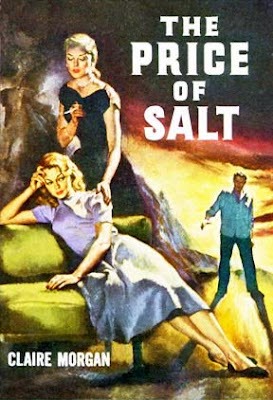
Assignments Due
Assignment Due In Tonight or Tomorrow by e-mail attachment to meredithsuewillis@gmail.com only: A passage with a conflict in your novel with all the elements of a good scene: dialogue, action, drama (see the pulp cover to the right) narration, maybe internal monologue-- and lots of sense details!
(Book cover at left: Click here to discover the identity of "Claire Morgan," the author of The Price of Salt,)
Optional Reading Assignment due: Two chapters in Ten Strategies"Strategy 2: Taste It, Touch It Smell It..." and "Strategy 4 Find Where You Standpoint of View."
Mini-lecture & Lesson for March 11, 2020
We ran out of time last week for going over dialogue and scene. Please click on Yonnondio and read the little scene from a novel about the Depression in the 1930's in the U.S. You'll see just about all the parts of a good fiction scene: at heart, it is a simple dialogue of a man who can't find work and is taking out his anger on his wife. You'll find two very different speakers, one who responds with silence. There are epithets and informal grammar within the quotation marks; at the end, there's some internal monologue; there is only a little description of scene setting and action-- not much, but essential, with imagery and liberal use of the senses. It evokes tones of voice as well as smells and sounds. There are very few "tags" to the speeches,
It is also centered around human conflict--both between the characters and also economic pressures that the characters may not understand but surely feel.
Just below the piece from Yonnondio is a mostly summarized scene from the great Raymond Carver short story, "Cathedral." Surrounding those two samples are a notes about scene and dialogue, and if you haven't read it yet, do look at the these materials on scene.
Here's the thing: we talked once about chapters, and how they are largely arbitrary, arranged for ease of reading, more or less short story length. I believe that the true building block, the structuring element, of a novel, is the scene, just as it is in those other dramatic genres, film and theater.
One of my favorite ways of thinking about a novel is as an archipelago, the tips of an underwater mountain range that rise out of the sea as islands. Imagine each island as a scene. We take a ship, or even better, a double hulled canoe like the ancient Polynesian settlers, and travel from one island to the next. Our vessel in the water is the narration and the other materials that connect the scenes. They are essential, but the high points, the dramatic peaks, take place on the islands.
Do This Now....
A good "outlining" exercise is to write one sentence summaries of 7 or 13 of the most important scenes in your novel,
For this exercise, let's do 7 scenes in your novel--already drafted or not. If you haven't written seven yet, do three and make up (hypothesize) a few more.
An assignment to try some other time (optional!!)....
Another assignment is to draft those seven scenes, however roughly. You then have seven scenes at widely varied spots in the novel, and one strategy is to write next what connects them. If you have enough scenes, this can give you a very rough but structurally sound early draft of your novel.
One more exercise to do now....
Look at this macro exercise of thinking about your novel. Print it out if you want to, or just take notes, or just think about it: a page on the structure of your novel.
At 7:00 Call in to the Phone Conference and Critique Session
Dial-in to (425) 436-6331
When asked, use the access code: 375223#
If needed, the online meeting ID: meredithsuewillisPresentation Schedule
Session 4. 3-18-20
Session Four will once again be online.
This time we will be using Zoom--
see NYU Classes for how to connect to it.
Genevieve--Presentation Piece for 3-18-20
Ria--Presentation Piece for 3-18-20
Sebastian--Presentation Piece for 3-18-20Sebastian's Outline
Introduction
This is our second session online, but for the first time we will be using Zoom, as requested by NYU.
This will be a video/audio conference, but you can do it audio only. The live conference starts at 7:00 PM, but please be here at 6:30 PM for material to read and things to do.
At 6:30PM:
If you haven't read them yet, please go over the presentation pieces for tonight's discussion. There are links just above this introduction.
Take look at the Presentation Schedule below to see if you are okay with your dates. I have added enough slots so that everyone has three turns, but let me know immediately if you did NOT get three, or if you want something changed.
Be sure you take a look at Sebastian's outline of his novel--partly for background on his presentation piece, but also as an example of one person's way of thinking through his novel by visualizing it in a chart. Note especially how three story lines start separately and join in various places.
Next, read the general instructions and the materials below. You may have already read some of the short pieces, but I've added more. The main mini-lesson tonight is about describing physical action (micro level) and logistics (macro level). There is also an example of point-of-view done wrong!
If you have time, do try the timed/in-class writing
Outline of the Zoom Meeting Tonight
The Zoom conference/class will be structured in a way similar to last week, but with video. ( If there are technical difficulties, look for a group e-mail from me.):
1. We'll go over any business-- notably to make sure everyone is happy with the presentation schedule. Any technical or procedural questions? We will be proceeding with the NYU calendar as set up, including two vacation days. Turn to this class web page for updates. We are probably going to be doing distance sessions for the rest of the semester.
2. Briefly discuss the short readings and materials for today: Point of view (the bad example); action and logistics.
3. Did you do the action writing? Does anyone want to share?
4. First Presentation Paper (Ria, Genevieve, or Sebastian)
5. Second Presentation Paper (Ria, Genevieve, or Sebastian)
6. Homework assignment for next week.
7. Third Presentation Paper (Ria, Genevieve, or Sebastian)8. Questions--open discussion? Anything on your mind?
Assignment due for tonight
.A scene with a lot of people in it-- a group scene. This might be a party; a battle; a bar; a church dinner; a class; a museum or stadium or other public space; or other. Use some of the people as part of the setting: colorful clothes? a mass of unfamiliar faces? Think about the point of view of this scene: is it being told by someone in the midst of it or from a great distance? Is it first seen in full, as a long shot? Or is it first seen up close, from one character's sense of being lost in the crowd? Or is the point of view from the speaker's platform, from the point of view of someone who is carrying out a subversive act?
Reading Assignment (optional) due today: (NOTE: the chapters in Ten Strategies to Write Your Novel aren't assigned in order) If you haven't already, be sure to read the two chapters in Ten Strategies from last week: "Strategy 2: Taste It, Touch It Smell It..." and "Strategy 4 Find Where You Stand--Point of View."
Things to Read Now
Read these notes on Grounding and the example of Point of View done wrong: "The Kilted Warrior."
We'll talk about these briefly at the beginning of the live class.
Physical Action
Writers who are naturals at dialogue and brilliant at structure and metaphor often have difficulties when their characters need to make a sandwich or kiss their lovers or strike out in a softball game. People write physical action in many ways, but the default is to describe it cleanly and smoothly, so that a reader can visualize what's happening and not have to get into trying to figure out whose fists smashed whose nose.
It is not as easy as it seems.
Here's an example that is plain and brief and cinematic in its small way. It was, in fact, transferred almost gesture by gesture to film.
The Don, still sitting at Hagen’s desk, inclined his body toward the undertaker. Bonasera hesitated then bent down and put his lips so close to the Don’s hairy ear that they touched. Don Corleone listened like a priest in the confessional, gazing away into the distance, passive, remote. They stayed for a long moment until Bonasera finished whispering and straightened to his full height. The Don looked gravely at Bonasera. Bonasera, his face flushed, returned his gaze unflinchingly.
-- Mario Puzo, The Godfather, p. 30
Love that detail of the hairy ear.
In general, physical action-- whether making tortillas or running for a bus or slashing with a knife, whether about making love or committing a murder-- works best when it is simple and sharp. The fewer words the better. Obviously this is a rule that has been broken often and to good effect, but start by trying to transfer what you see in your mind simply and clearly to the reader's mind.
One excellent technique to help you do this is to close your eyes and actually visualize a movie or TV screen. Watch your characters do their actions on the screen, and then write what you saw. Keep in mind that once again we are talking about revision, not drafting: I don't care how bad your description of action is in your first draft. Get it down first, then make it better.
Here are two passages of action. The first one is, which you are welcome just to skim, is a classic not-so-artistic passage of action from an old cowboy novel. It feels long and loose now, but Louis L'Amour was extremely popular in the last century
The second one is rather poetic, but also very easy to visualize. It also is about the narrator's experience, and and her feelings about dance and her dance teacher.
A Fist Fight from an old Louis L'Amour Novel
He Goes She Goes
A Physical Action Writing Assignment
Set a timer for 3 minutes. Write about a character in your novel running. If you don't have such a scene, add one--maybe from the part you haven't written yet.
The character may be fleeing danger or trying to make a plane or in a competition or playing with a pet. Write for 3 minutes seeing the action from the outside, concentrating on the movements and sounds, possibly using the screen technique above.
Set the timer again for 3 minutes. Write it from the inside. Concentrate on what the running feels like: feet pound? Lungs burn? Does the person fall?
Logistics
Action writing is the close-up, with details of the human body in motion. Logistics is about movement too, but it is the movement of large groups of people or things, or about people moving through space. Like group scenes, the multiplicity of moving parts makes this difficult to get right.
Read these short passages, examples of logistics and crowd control.
The first one is a newspaper account from the 1930's that attempts to describe something that was new at the time: air attacks on civilians. It is about an event that Picasso made famous in his monumental painting Guernica.
The second one is two versions of someone coming into a bar. One is written to give the layout of the room in a more-or-less cinematic way. The character scans the place and gives us a sense of what is going on, who is standing where. The second version has a vertiginous effect. Things are seen out of order. It is a point of view that shows the character is under stress or possibly drunk or drugged.
The final passage is from one of my novels, Oradell at Sea. I was attempting to do a little of all that: make the big picture of what is happening clear, but also limit what we see to what the main character sees. It's set in the dining room of a cruise ship. (Is anyone every going to go on a cruise again??).
Some Tricks for crowd scenes:
Finally, here are a couple of practical ways of dealing with logistics and large groups. I probably shouldn't talk about tricks-- all prose narrative, after all, is an illusion of reality-- but as you revise, you can try these things to make the story telling run more smoothly.
Only identify two or three individuals in a scene. Say "The twenty two members of the Ridgewood Bobcats walked into the dressing room with long faces," and then give quoted speeches only to Rob, Andre, and the Coach. The other Bobcats can mutter as a group, or lower their heads in shame, but they remain a mass, part of the scene setting.
Only give proper names to the most important characters in a group scene. (As above. Be sure you really need the names. Proper names call attention to themselves.)
Clarify the logistics and physical action by giving a firm point of view. Imagine a fixed camera or a character in a chair in the northeast corner next to to the white board. Write only what is seen from that point of view. This will help keep the reader oriented. If that point of view or fixed camera angle is blocked by a pillar, don't tell what can't be seen. Even if you have a multiple viewpoint story, write your action from one point of view.
Conflate. If you are writing fiction based on you own large real family, for example, conflate two annoying little brothers into one. It strays from the facts, but allows the creation of one full character and eases your logistical problems.
Take a look at the Presentation Schedule
Homework Assignment for Next Week
Write a scene focused on a minor character. If you have a first person or strong third person limited novel, keep the point-of-view you are using. Part of what you want to do here is give your main character's take on the minor character. Remember, if you can, do more than one thing at the same time.
Session 5. 3-25-20
Session Five is once again online.
We will again be using Zoom--
see NYU Classes for how.Presentation Pieces for Today
Laura
Suzan
Lenin 1
Lenin 2
This will be a video/audio conference, but you can do it audio only if you insist. It's nicer to see faces!
The live conference starts at 6:45 PM, but please come at 6:30 PM for material to read and things to do.
Assignments due now
(all assignments must arrive at MSW's e-mail by the end of business, Friday, March 27, 2020.)
Write a scene focused on a minor character (or substitute pages from your novel).
Read "Characteristics"-- some ideas for making a list of things about characters to help develop them.
Read: Notes on minor characters.
READING CHANGE!! Read (optional): If you have Ten Strategies, read in Chapter 3, starting p. 21, "Explore Character from the Inside Out."
Introduction
At 6:30PM:
If you haven't read them yet, please go over the presentation pieces for tonight's discussion. There are links above.
Take look at the Presentation Schedule below to see if you are okay with your dates. I have added enough slots so that everyone has three turns, but let me know immediately if you did NOT get three, or if you want something changed.
Next, read the general instructions and the materials below (after "Outline of the Zoom meeting"). The main mini-lessons tonight are some thoughts about character and some ideas about verisimilitude and more grounding.
Outline of the Zoom Meeting Tonight (6:45 PM)
The Zoom conference/class will be structured as it was last week. (If there are technical difficulties, look for a group e-mail from me.):
We'll go over any business-- notably to make sure everyone is happy with the presentation schedule. Technical or procedural questions? We will be proceeding with the NYU calendar as set up, including two vacation days. Turn to this class web page for updates. We are probably going to be doing distance sessions for the rest of the semester.
Group Discussion
Go over together the short readings and materials for today.
First Presentation Paper (Laura, Lenin, or Suzan)
Second Presentation Paper (Laura, Lenin, or Suzan)
Homework assignment for next week.
Third Presentation Paper (Laura, Lenin, or Suzan)
Questions--open discussion? Anything on your mind? You may always send me an e-mail with thoughts or suggestions.
Read Now
Read "Characteristics" if you haven't yet.
Read this piece about Monologue and Minor Characters.
Some Notes on Character
Friday Kahlo, who made a character of herself in her art; a scene from movie version of Hemingway story, "The Killers;" Fan-fiction charactersCharacter is generally easier to talk about with minor characters, which is the point of focusing on minor characters as an assignment. Your main character or characters are so thoroughly at the heart of your novel that their characteristics often form the very structure of the book, Does your character go from clueless and arrogant to wiser and more humble? (Jane Austen's Emma and the old nineties film version Clueless). Almost all the many coming-of-age stories including fantasy versions are structured like this--the changes in the main character shape the novel.
Minor characters, on the other hand, are more an essential part of revision. The most minor ones of all- the thugs who attack the hero, the people at the biker bar--are really part of the scenery and best unnamed and described as "the one with the nose ring" or "a trio of drunk jocks." Describing them this way is, of course, stereotyping--it assumes things and turns people into things. This is more or less legitimate when you are setting your scene in a novel (although if the stereotypes are too obvvious, it gets boring and stale), but once the character moves from background to being a character, however minor, when the characteer gets a name or stands out even a little--then, in my opinion, the best fiction writers turn them into real people, however short their time on stage. You do this, not surprisingly, by looking at them closely in imagination, seeing them in your mind with your senses as well as the part of you that generalizes.
Perhaps even more important, this effort to see vividly and sharply gives you dividends: as you sharpen and individuate the minor character, new ideas for scenes and plot twists will likely come to you.
One way to help along with this process is to use lists like my "characteristics" to individuate and enrich minor (and major) characters. I think a list like this is especially useful for getting new material when you're stuck. If you give a couple of your characters a sign of the zodiac, for example, what could you do with that? Have a conversation about it? Maybe the hard-boiled detective thinks it's garbage, but suddenly he begins to see signs of the zodiac everywhere. Thinking about these things gives all kinds of new possibilities: thinking about your character's birth-order (baby of the family?) might suggest new behaviors. A mixed religious background (Dad was Jewish and Mom was Roman Catholic?) can give a myriad of ideas for actions and plot points. Even favorite foods could become important: she hates oysters and thus doesn't get sick when the group is served bad ones....
The beauty of novel writing to me is that anything can be of use. The smallest detail can grow into something important. We get to use everything including the kitchen sink.
Write, if you have time....
Here is a character building exercise. First, choose a minor character you are having trouble with or just not satisfied with. Make a list of characteristics from the list--choosing 5 -10 that seem appropriate for your character.
Next, write a monologue for the character, using or not using the list as you like.
Finally, see where or how you might use it in your novel. As part of a dialogue? Broken up into pieces and used in the narration and/or over several dialogues? In a phone or digital message?
Verisimilitude and More on Grounding
Verisimilitude is something I find myself querying in your home works and presentation pieces. The word does not mean "realistic" or "natural." Rather, it's whatever it takes to make a reader believe what they are reading. It means "the appearance of reality." In other words, does the illusion work? Does it seem true? Does the character seem 15 years old? Does she really seem like someone who has been homeless for two years?
Some very quotidian things readers usually need are things like characters' ages; what the characters look like (this can be very minimal--"with his long greasy red hair";
what century or world we are in. You may be quite general here--"Long ago and far away"-- and you may choose to leave a lot of uncertainty. The issue is to keep the uncertainly intriguing--how to tie it just close enough to something concrete so that the reader doesn't drift off to, say, the t.v.
Pacing is one of the trickiest parts of creating verisimilitude. Most of us just depend on our experience as readers to know how long a scene should take or how much to include, but as you revise, try to be thoughtful about your illusions. Sometimes it is enough to say, "Ten years passed...." Or, at the end of a struggle, the hero gets knocked out, there's some white space, and he wakes up and tries to figure out where he is.
More difficult is figuring out how long the struggle should go on to make it seem real but also to give an overview of what is happening. You want it to be very clear what is happening even if the character is drugged or confused! Good luck with that...
Verisimilitude is closely related to what we've been calling "grounding," which has to do with putting the reader's feet on the floor of a particular decade or distant planet. In my science fiction books I have (not terribly originally) made the planet have two suns, one pink and one blue. This makes me conscious of what color the shadows in the desert are, and this in turn helps keep me on that planet in my story and imagery.
In a novel I wrote that takes place in part during the second world war, I did a little light research with a box of crumbling newspapers at my mother's house. I found a nineteen forties newspaper and, since I'd given the main character a job in a movie theater, I thought I could find what movies were playing and what movie stars. She was a teen-ager, and the movie stars gave me the idea of comparing the stars to the real men and boys in her life. around her. So my research, slight as it was, helped develop character and story line as well as getting a few facts straight. It gave me more: I found an ad for a brand new floor model radio that I added to the décor of an affluent family's house. I also was reminded that women (and men) in the 1940's wore hats! Not only did people wear hats, but women were indulging that year in a style called a "picture hat" which had a huge round rim that was supposed to show off your pretty face. This gave me a scene in which the main character has trouble getting into a car because of her hat.
This is small stuff, but small stuff is precisely what grounds your reader. The things we touch and eat and sit on and wear are for novelists also what fuels our imaginations. It doesn't matter where the details come from, but if you don't have them, the grandest architectonics and the most gripping plot will feel sketchy and incomplete. The world of your novel will feel like someone's personal fantasy rather than a vivid fantasy world we can all imagine being part of.
Zoom Session at 6:45 PM
Business-- make sure everyone is happy with the presentation schedule? Any technical or procedural questions? We will be proceeding with the NYU calendar as set up, including two vacation days. Turn to this class web page for updates. We are probably going to be doing distance sessions for the rest of the semester.
I'll be putting up a short Survey Monkey questionnaire asking you for an evaluation and suggestions for the second half of the course. I'll e-mail details.
Group Discussion: A brief plan: What will you have accomplished on this novel by the end of 2020? We'll do this as a go-round. Take notes. We are in a strange moment of time, but for some of us at least, the relative quiet may work for us.
Before the Coronavirus hit the fan, as it were, I was working on a new novel. First I went away for a week; then I had to learn how to do NYU distantly. Men while I had two sets of galleys to go over (this was wonderful but exhausting), and I lost momentum badly. Now I've set myself the task in the next few weeks of writing 5 or 6 scenes extremely roughly (I mean bad!) to go with 50 or so better pages I sketched out weeks ago for a new novel. The reason I'm doing this is to get some material; to have an idea of where the story is going; to have enough drafted to bring me back to it after I finish some other projects. Let's try it: Take three silent minutes to write or just think of where you'd like to be on December 31, 2020--with your novel! I don't mean at a party celebrating the end of 2020!Short readings and materials for today. Finding your characters, conveying your characters to readers. Verisimilitude.
First Presentation Paper (Laura, Lenin, Suzan)
Second Presentation Paper (Laura, Lenin, Suzan)
Homework assignment for next week, 4-1-20: Write a scene that uses a technique common to both narrative and film (establishing shot, lighting, jump cut, etc.). Take a look at useful film terms and Close-up/longshot. Reading Assignment (optional): Ten Strategies, "Strategy 7: Use Film Techniques." Check out these notes on using the present tense in narrative. For more on writing physical action , take a look at this passage from one of my novels in which a character is at a political demonstration.
Third Presentation Paper (Laura, Lenin, Suzan)
Questions--open discussion? Anything on your mind?
PRESENTATION SCHEDULE
Session 6. 4-1-20
Wednesday, April 1, 2020.
No fooling!
Presenters Today:
Mack Hood
Tina Rosenberg
Ria Vyas
The live conference starts at 6:45 PM, but please come at 6:30 PM for material to read.
Assignments due today:
(All written assignments and presentation pieces to be discussed or returned before the NEXT session must arrive at MSW's e-mail by the end of business, Friday, April 17, 2020. Sooner is great. This is a good time for extra pages, too.)
Writing Assignment due: A scene that uses a technique common to both narrative and film (establishing shot, lighting, jump cut, etc.).
Reading Due today:See below.
Optional: Ten Strategies, "Strategy 7: Use Film Techniques."
Introduction
At 6:30PM:
If you haven't read them yet, please go over the presentation pieces for tonight's discussion. There are links above.
Take look at the Presentation Schedule below to see if you are okay with your dates. I have added enough slots so that everyone has three turns, but let me know immediately if you did NOT get three, or if you want something changed.
Next, read the general instructions and the readings below (after "Outline of the Zoom meeting"). The mini-lessons tonight are about the use of dialect and foreign languages and a little on tense--oh, and one of my pet grammatical peeves!
Outline of the Zoom Meeting Tonight (starts at 6:45 PM)
We'll go over any business. Note we will be proceeding with the NYU calendar as set up, including two vacation days (April 8, 2020 & April 15, 2020)
Any updates will be on this class web page.
Go over together the short readings and materials for today.
First Presentation Paper (Mack,Tina, Ria)
Second Presentation Paper (Mack,Tina, Ria)
Break; in-class work; homework assignment for next week.
Third Presentation Paper (Mack,Tina, Ria)
Read Before Class Starts if possible:
If you haven't yet, look at useful film terms and close-up/longshot.
Order of Sentences
Check out these notes on using the present tense in narrative.
Optional: Ten Strategies, "Strategy 7: Use Film Techniques."
Also take a look at the mini-lessons here:
Tiny mini-lesson on one of my Pet Peeves: Lie versus Lay
– Today I lie in my bed; yesterday, I lay in my bed. In the past, I have lain in my bed till noon.
– As we speak, I lay the paintbrush on the table. I laid it there yesterday too, and, in fact, I have laid it there many times.
– As we speak, I lay it down, and then the paintbrush just lies there.. But when I laid it down yesterday, it rolled off the table and lay on the floor.
Confused? Paintbrushes "lie" on the table or floor, but you "lay" the paintbrush down on the table. Then of course, it just "lies" there.
The really confusing part is the past tenses: "I laid the brush down beside the paints, and it just lay there." One verb has an object; one doesn't. Many, many people do this in a grammatically incorrect way.
For those of you who hate grammar and don't really care, take heart: there is an excellent chance that in another ten or twenty years, usage will have changed.
One current dictionary ( Random House Unabridged Second Edition) explains, "...forms of LAY are commonly heard in senses normally associated with LIE. In edited written English, [however,] such uses of LAY are rare and are usually considered nonstandard."
Use and Misuse of Dialect, Accents, & Foreign Languages-- Using accents/dialects-- or not!
What is the best way for a writer to show that a character speaks a particular dialect or with a particular accent? This is tricky, because there are serious pitfalls, namely readability, accuracy, and respect. As wonderful as Mark Twain's The Adventures of Huckleberry Finn is, there are passages that are very wearying if not unreadable because of the thick transcription of dialect:
"I got hurt a little, en couldn't swim fas', so I wuz a considable ways behine you towards de las'; when you landed I reck'ned I could ketch up wid you on de lan' 'dout havin' to shout at you, but when I see dat house I begin to go slow. I 'uz off too fur to hear what dey say to you- I wuz 'fraid o' de dogs; but when it 'uz all quiet agin I knowed you's in de house, so I struck out for de woods to wait for day..."
This is slow, painful going at best, and I'm not sure it's even truly accurate.
The fact is that, since narrative is always an approximation of speech, we are probably better off hinting at accents and dialects. We can never truly transcribe the exact sound of language.
Variations in word order and vocabulary tend to be richer than attempts at transcribing
pronunciation exactly. Occasional touches of non-standard grammar or a hint of pronunciation also go a long way toward creating the illusion of how a speaker speaks. Look at the opening of Denise Giardina's Storming Heaven (Denise Giardina left) which hints at an Appalachian dialect:
They is many a way to mark a baby while it is still yet in the womb. A fright to its mother will render it nervous and fretful after it is birthed. If a copperhead strikes, a fiery red snake will be stamped on the baby's face or back. And a portentous event will violate a womans entrails, grab a youngun by the ankle and wrench a life out of joint.
The written word is always an approximation, a created thing; the writer's job is to create a functional illusion. This uses certain Appalachianisms ("They is," "youngun") but makes no attempt to transcribe.
Consider also what it means when you transcribe one character's dialect but not another's. For example, some writers use "in'" for "ing" in every word a character of Appalachian or Southern or African-American background says. In fact, very few if any dialects of English (and we all speak a dialect, even if it is Standard English) pronounce the full "ing." Jim's speech above in Huckleberry Finn, has "de" for "the," and again, this is a pronunciation toward which almost all English speakers tend, especially when they speed up their speech.
In writing dialogue in fiction, if you try to show every little variation from standard pronunciation for some speakers but not for every speaker, you are probably revealing what is at best at attitude of condescension.
Similarly, if you have passages where characters are speaking a foreign language, I like best to say it, in narration: "When they brought him in, his mother began to shout in Spanish." Then simply give the English, perhaps tossing a word or two of Spanish for flavor: "When they brought him in, his mother began to shout in Spanish. '¡Dios mío!' she cried. 'He's bleeding!'" This is not a perfect solution, and it is certainly not a rule, but if your objective is to move your story along with hints of spoken language, the one thing you don't want is to bring a reader to a full stop trying to figure out what language is being spoken or, worse, sounding out the words to figure out what they represent.
Or going online to a Spanish-English dictionary to figure out what the people are saying.
For more on these issues, here are some notes on using foreign languages in your novel and an article from Writers Digest that gives another point of view on writing dialect (that I don't totally agree with.)
Notes on Tense
1. Advantages of the Present Tense
--Immediacy- especially how it can convey change as it happens in the first person. Extends realism in the realm of time: durational realism (like old TV show "24")
--"Defamiliarization" by giving a sense of intensity and originality- less original now, of course, as many people use it.
-- Very effective in conveying disordered and disoriented mental states: dream, insanity, etc.
-- Especially valuable when it reflects a work's themes: e.g., a character who is "boxed in the present" or trying to repress the past or unable to remember the past.
2. Disadvantages
-Restricts ability to manipulate time: hard to maintain and compress time, hard to do flash forwards, flashbacks- they can destroy the illusion of presentness.
-- Harder to create characters for whom the past is important.
-- Harder to create suspense, because present tense narrators don't know what's coming.
-- Takes the story out of time. It can begin to sound like the generalized present or historical present as in, "I write in the morning" and "Shakespeare is making the point that..."
-- Tends to limit variety in narration.
-- Tends toward minimalism, and thus has less room for description.
-- Leads to including trivial things because they are realistic and "present."
-- Can feel impersonal and detached.
-- It is tricky to narrate something like a murder or rape or fight. Seems always aimed at an audience like calling a game play-by-play: "And now he's at the twenty yard line, and now..."
3. Some of these vices can be virtues and vice versa.
Zoom Session at 6:45 PM
Is everyone still well?
Is everyone okay with the presentation schedule? Any technical or procedural questions? We will be proceeding with the NYU calendar as set up, including two vacation days (April 8, 2020 & April 15, 2020). Turn to this class web page for updates.
All written assignments and presentation pieces to be discussed or returned before the NEXT session must arrive at MSW's e-mail by the end of business, Friday, April 17, 2020. Sooner is great. This is a good time for extra pages, too.
Did you do the Survey Monkey questionnaire asking you for an evaluation and suggestions for the second half of the course? Only 3 people I saw.
We'll do the career /marketing during session 8, 4-29-20.
Short readings and materials for today.
First Presentation Paper (Mack,Tina, Ria)
Second Presentation Paper (Mack,Tina, Ria)
Break
In class writing: using a scrap of paper or going to your word processor if you can do it without losing the connection here...
Put one of your characters at a celebration (lots of people! No social distancing!). This can be a genuinely happy moment--a wedding, a party--or it can be a moment when the character is unhappy, disappointed. Or perhaps something completely undermines the idea of celebration (think "The Red Wedding.")
Keep your usual point of view and try to remember the sensation of being among many other people, the noise, the odors and fragrances, tastes and touches.Homework assignments for 4-22-20:Assignment: Prepare an outline. This can be sentences or a formal Roman Number outline or a chronology--or even a drawing or map of your book. You may always substitute pages of your novel.
Third Presentation Paper (Tina)
Questions--open discussion? Anything on your mind?
PRESENTATION SCHEDULE
No Class April 8, 2020
No Class April 15, 2020
Session 7: 4-22-20
Wednesday, April 22, 2020.
Sebastian Lopez
Aesop's Fable (background for Sebastian's)
Genevieve Castelino (selection for presentation)
Genevieve Outline
Tina Rosenberg
The live conference starts at 6:45 PM, but please come at 6:30 PM to be sure you have read the material below.
Assignments due today:
Writing Assignment: Prepare an outline of your novel. This can be sentences or a formal Roman Number outline or a chronology--or even a drawing or map of your book. See samples.
You may, of course, always substitute pages of your novel.
Reading Assignment (optional): In Ten Strategies, read "Strategy 6: Structure Your Novel." Check especially starting p. 96 "The Best Time to Start Outlining."
6:30PM--Read Before Class Starts if possible:
If you haven't read them yet, please go over the presentation pieces for tonight's discussion. There are links above.
Also, if you haven't yet, look at the notes on outlining.
Summary of how you structure Multi-plot novels.
Finally, if you haven't yet, look at these pieces from last session:
Useful film terms and close-up/longs hot.
Order of Sentences
Notes on using the present tense in narrative.
6:45 PM Zoom Session:
Don't forget new class ID number on zoom:586-531-936
Is everyone still well? Are you able to write in this new situation? What is getting in your way?
Final changes to the presentation schedule? Any technical or procedural questions? Turn to this class web page for updates. Marketing/Next steps discussion tonight.
First Presentation Paper (Sebastian)
Second Presentation Paper (Genevieve)
Break
Outlining: any questions, thoughts on the outlines? We've seen Sebastian's detailed map & setting list; Genevieve's new chart & family tree; Mack early on gave us title, synopsis, structure, setting, main characters; Ria and others gave lists of chapters and sections etc.
I am personally partial to two methods (but the main thing is, figure it out for yourself): the hypothetical method for creating a plot: you make up a hypothetical or test plot. Write down a beginning, middle, and end. Write as if that made-up plot were your plot, but be ready at any moment to change it. This gives you a structure to work with (especially an end point) but gives preference to changes that your imagination might come up with. The other thing I particularly like is the "running outline," which is a daily record of progress and changes. Here are some samples:.
Note re: my sample outlines that one is a form that a writer created to help draft each chapter in the book. One is from my non-fiction book about writing a novel, which is fairly straightforward, based on teaching and workshops I've done, and much less of a struggle than my fiction outlines. . Another is from a science fiction novel of mine, and it's what I call a "running outline," that is, I update it at the end of a day's work--doing the page count, word count, date, and also making any changes (names, facts) that I came up with that day. One is a student "outline" that is really a diagram of characters that helped her in her thinking--and that's the main point of an outline: to help you visualize what you've done and to hypothesize about what you might do--and remember ideas for the future. You need to find your own best outlining method.
Four minute Writing Exercise : Put a moment of loneliness in your novel. Perhaps a scene you've already written. Character can be alone, or maybe just feeling alone.
Marketing/Next Steps
It is a time of great flux, lines weakened between commercial publishing and so-called indie publishing which is sometimes self-publishing, sometimes subsidized or shared. Many models that you'll need to research on your own.
The ideal, which I was at the very end of, is agent who takes on book, sells to editor, who sells to her publisher, who edits, prints, sells, etc. For some, still happens. Good luck!
Now, even with a commercial publisher, they want your "platform" and sometimes copy editing.
(But I have to say, even when I had a hotshot agent who placed my first novel with Scribner's, I placed my children's and literary short story book on my own. Agent just went over contracts and took a cut.)
Since then, I've published with small presses that paid nothing; university presses that don't do advances, but pay a cut; also part of a cooperative press originally for republishing, and more.
Here are some things to do as you get closer to being ready to market your novel:
First, get it in pristine condition--they have no patience for mess and mistakes.
Experiment with submitting to online journals and magazines. Lots on the internet.
Do your research! Read Jefff Herman's guide to agents. Read old standards like Writer's Market and The Writer and Writer's Digest and get on Jane Friedman's free newsletter etc.
Go on Facebook and search for "Calls for submissions (poetry, fiction, art.)" Sign up to get notices.
Here's some online information about submitting and marketing your work in the age of e-books and self-publishing
Look at the resources a my t Draft Notes on Getting Published
Notes on various types of publishing at Publishing Types and Print on Demand.
How long should a novel be? See notes on my Resources for Writers page.
See blog post by Veronica Sicoe on why she self-publishes and
A Wall Street Journal article about Marlen Bodden, a former student in one of my novel classes who first self-published-- and then had her book picked up by a commercial press. Note: self-publishing should never be you first choice, but it should be on your list of possibilities.
One page of mags, books, links about getting published
Some Excellent Specific Questions:
Once you feel your book is ready, what are the steps to getting it published?
How do you find an editor?
How do you find an agent?
How should you approach the above? What should you say in your cover letter?
What is the best way to ensure that someone in publishing will actually read your manuscript?
How do you copyright your novel to prevent someone from stealing the ideas and content?
Would self publishing be an option rather than go through all the rejections unknown writers are likely to receive? If so, are there companies you can recommend?
If you do get published, what rights should you negotiate?
Some sources suggest no major publisher will look at manuscript that is not supported by an agent? Is that true?
Are there good sources, a good list available, at places other publishers? clearinghouse?
What is the best way to track when publishers that are closed, open for submission again?
What are the most important aspects of the pitch letter, and are there tools that work better?
What is the right number of agents to query at one time? They take so long, and not all of them even reply. Is there any reason not to send to a hundred in one gulp?
In the notes about one agent, she wrote please, please not to send her stories about "white dudes on quests." That covers a lot of ground. I am all for diversity but still hope to be published. Any advice on how to negotiate this variable?
How on earth does one navigate these times relative to getting published?
Is it wise to have one's novel professionally edited before submitting a manuscript or wait for them to hand it to in-house editor?
How are publishing houses doing and what adjustments will they have to make now?
Are any of them actually making efforts to market one's book or is it up to the author to manage everything?
10. Homework assignments for 4-29-20: Write a scene that uses a technique that is especially successful in fiction (interior monologue, memory, word play, flashback, summary, dream, playing with time, etc.) .Read flashback note here. Read (optional): In Ten Strategies, read "Strategy 8: Doing What Novels Do Best"
Please make sure all presentation pieces and homework have been emailed and received by Friday April 24 at the end of business hours.
11. Third Presentation Paper (Tina)
12. . Anything else?
PRESENTATION SCHEDULE
Session 8. 4-29-20
CLASS TIME: 6:30 PM - 8:50 PM
CLASS MATERIALS NOW AVAILABLE.
Presentation Pieces for 4-29-20
Ria
Suzan
Greg
Link to a new article about the former NYU novel class student who has done so well with self- publishing. You'll notice she puts a lot of resources into the process-- her own money and time among other things. Also, take a look at the publication this appears in, Poets & Writers. It is aimed in a literary direction, lots of articles plus lists of places to submit work, summer conferences, MFA Programs and more.
Some general reminders for the last weeks of class:
Homework is due in by the end of business on Friday.
Presentation pieces are due Monday at the latest.
Class starts at 6:30 PM now, but do.....
Try to look at the web page for materials before, if possible.
Finally, if you have any more questions, issues, etc. please email them to MSW.
Writing Assignment due tonight, 4-29-20: Write a scene that uses a technique that is especially successful in fiction (interior monologue,memory, word play, flashback, summary, playing with time, etc.) .Read flashback note here.
Reading Assignments for tonight, 4-29-20:
Note on flashback if you haven't read it yet.
Note on different kinds of time in prose fiction: Ellipsis, Summary, Scene Stretch, Pause.
In Ten Strategies, "Strategy 8: Doing What Novels Do Best" (optional)
If you haven't read them yet, please go over the presentation pieces for tonight's discussion. There are links above.
6:30PM Zoom Session:
Don't forget new class ID number on zoom:586-531-936
Laura
Does someone want to move their presentation to final session? Suzan. Lenin, Mack, Genevieve? Other final changes to the presentation schedule?
Did you look over the article about Marlen Bodden and her self-publishing career?
Remember, email me anything you want covered (more marketing, more structure questions)
First Presentation Paper (Greg)
Second Presentation Paper (Suzan)
Writing Exercise: Here's something really random. Put a head covering into your novel (hat, baseball cap, hijab, battle helment) into your novel. Focus on what the head covering looks like, texture, temperature even odor? Does it bring up a memory? Is it part of the plot? Does it change what happens?
Break
What do novels do best?
Interior life and drama (interior monologue, stream of consciousness, etc.). Even theater doesn't quite do this as well as novels: addressing the audience in a monologue is a terrific moment in a play, but in fiction, we can create the illusion of the character truly alone with her or his own thoughts.
The intimate senses (smell, touch). We talked about this early on but just a reminder that anytime you are stuck or feel a scene is too thin, focus on a painfully sore hangnail; the odor of marijuana wafting up from below the boardwalk; the first taste of a cold beer at the ball game.... This will at once take you inside your character and offer new possible material for incidents and insights.
Creation of mood and connections/juxtapositions with language (imagery, syntax, etc.) . We don't talk a lot about style in this class because we have so much to say concerning structure, but how you create the voice that tells your story, whether you choose transparent language or rich, poetic imagery--all these things are part of what makes your novel. If you can find the right voice to tell the story and the right balance of imagery and plain writing, you'll be well on your way.
Then there is the manipulation of time, which novels do perhaps better than any other art form, using strategies like flashback, foreshadowing, and special techniques like ellipsis, summary, scene, stretch, and pause. We talked a lot early on about scene, which is the showing rather than telling of what is going on. I always speak of it as the quintessential building block of the novel. It is the central way we move novels forward, and I suggested that one way of drafting is to make rough versions of the 5 or 17 most important moments in the novel. This is the closest we write to real time. To stretch or pause time, on the other hand, allows us something all human beings seek, which is to stop and examine what is happening in detail, or to hold something that is precious or beautiful or powerful frozen for a while--or to get a second change, a do-over, a Take Two or Twenty two. One reason we write (even if it's fantasy or something ostensibly very unlike our own lives) is to get a new chance--to change what happened by going back in or stopping time.
Here are some more of the specific manipulations we use:
Flashback is not just "I remembered how we used to drink lemonade on summer nights," but when we stop the forward motion (the "present time") of our story and actually describe the flavor of the lemonade, quote what was said, write a whole scene that is as full and rich as a scene in the present of the novel.
Foreshadowing is useful in certain kinds of novels, often as a means of building suspense: here's the opening of Dennis Lehane's novel Live by Night:
Some years later, on a tugboat in the Gulf of Mexico, Joe Coughlin’s feet were placed in a tub of cement. Twelve gunmen stood waiting until they got far enough out to sea to throw him overboard, while Joe listened to the engine chug and watched the water churn white at the stern. And it occurred to him that almost everything of note that had ever happened in his life—good or bad—had been set in motion the morning he first crossed paths with Emma Gould.
Is Lehane manipulating us here ? Grabbing our attention? Sure, and we are pretty darn happy to be manipulated.
Memory, in its various forms, but especially when sense impressions usefully set off (and transitioning to) memories. (see Proust's À la recherche du temps perdu !)
Dreams and visions. To be used sparingly, but can be very effective in in novels becuase we engage the reader's mind and imagination.
11. Third Presentation Paper (Ria)
12. Homework assignments for 5-6-20: Assignment: A revision based on comments in this class. Include notes from MSW and class members for comparison. Reading Assignment (optional): Ten Strategies, "Strategy 10: Revise Your World." Also take a look at my article Seven Layers to Revising Your Novel ( from The Writer (November/December 2012, Vol. 125, Issue 11).
Session 9. 5-6-20
CLASS STARTS AT 6:30 pm
Presentation Pieces for 5-6-20:
Mack
Genevieve
Lenin
General Topic tonight is Revision.
Writing Assignment for those doing them, due tonight:
A revision based on comments in this class. Include notes from MSW and class members for comparison.
Reading Assignments due:
"Tyler's New Clothes"
Seven Layers to Revising Your Novel ( from The Writer (November/December 2012, Vol. 125, Issue 11).
Suzan Colón's "Stakes" Method of Outlining
Poets & Writers has a $4.99 Downloadable Book about the Process of Publishing
Also, of course, the presentation pieces for tonight: links above.
Optional Reading Assignments:
Interesting ideas from Alexander Chee on how he writes his novels
Ten Strategies, "Strategy 10: Revise Your World."
6:30PM Zoom Session
Business:
Zoom ID number is 586-531-936
Some general reminders for the last weeks of class:
FINAL HOMEWORK (or alternative pages) is due in by the end of business on Friday, May 8.
Final Presentation pieces are due Monday, May 11, at the latest.
No work accepted after Monday, May 11.
Try to look at the web page for materials before, if possible.
Do take a look at A Journal of Practical Writing, especially Suzan's piece on using the "Stakes" method of structuring a novel.
Any last minute questions, issues? Please email them to MSW.
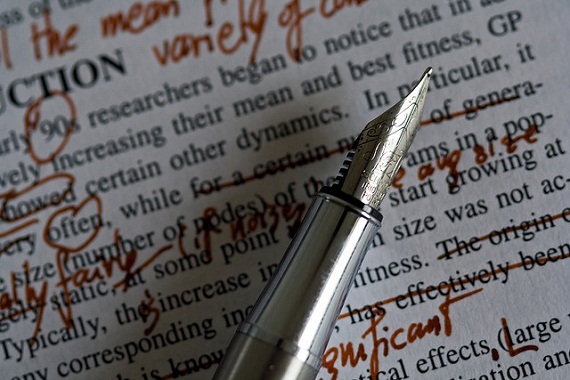
Session
How is everyone doing as the euphoria of a new world wears off? Anything on your mind about novels, about the ups and downs of the process of getting yourself at the computer? I have a friend who has gone back to writing by hand, to deal with discomfort of new world we're living in.
First Presentation Paper (Mack, Genevieve, Lenin)
Second Presentation Paper (Mack, Genevieve, Lenin)
Writing Exercise: Someone in your novel gives someone else a gift. This could be the protagonist to a friend or lover or loved one; it could be a dangerous gift; a gift that confuses or causes conflict; it could be an unwanted gift the receiver does not want. Anything that works for your novel. A good way of proceeding is to describe the thing first (if it is material), using the physical details to stimulate your imaginatiion for what happens next. Does it remind the character of another gift or another person? What does the gift cause to happen in the story?
Break
In Class discussion: How we revise novels-- keeping our writing going.
A. What is the best piece of advice/suggestion you've every had for novel writing? This could be about fiction writing in general, about structure, about style.
B. What is the novel you've read that you've learned the most from? This may not be a classic, or even a favorite. For me, it was probably the first of the George R.R. Martin Fire and Ice novels, A Game of Thrones, and I learned a tremendous amount about point of view--how you can get a broad picture not only with broad strokes, but by moving around among close-ups of a single character's world, followed by another character.
What novel did you learn most from?
C. Revising novels is both about looking big and the little grungy details.
Some small stuff:
Consider your metaphors: do they match up with your world (2018 New York City? Lenin's Yonder Lands?) In my current science fiction novel, I did a revision making sure that images referred to the world we were in. Thus, "Her greediness was a kind of joke among us, and we would say things like I'm as hungry as Grace!" I was avoiding saying "hungry as a bear," as the planet has no bears.
-- Some samples of close editing
-- Tyler's New Clothes I want to look closely at a piece from a novella of mine about to be published. First there was tightening-- what I think of as soft sentences getting more wiry, tougher. But also a big change (during revision) in what is conveyed: information about the school, and the vice-principal. The original two women teachers talking is naturalistic, but doesn't go very far with the story or deep with the characters. The same information, given via the narrator and the vice-principal has more underlying tension, maybe more about the culture of the school. I only discovered this as I was writing a second (maybe third) draft.
I get tremendous pleasure in seeing passages come into view like this, like an old fashioned developer bath for photos. Another way I think of this is as sculpture: I get that elephant's general bulk hacked out, then the details that make it meaningful come into view.
-- A few words about using names in novels:
● Don't overdo proper names in dialogue--too much use of direct address makes your character sound like a bad salesman.
● Avoid alliteration unless you have a reason, such as humor.
● Avoid using your high school biology teacher's name for your villain, especially if your teacher is still alive and likes to read.
● If you're having trouble choosing just the right name, use a "marker" name (maybe the real person the character reminds you of, or maybe the actor you imagine playing the character in the movie version). You can always search and replace later, as the character takes shape and develops. If you're having trouble, it probably means that you are also having trouble establishing the character. As you know the character better, you'll probably come up with a satisfactory name.
Some bigger issues, for those of you close to the end of the process:
-- Seven Layers to Revising Your Novel
Third Presentation Paper (Mack, Genevieve, Lenin)
Homework assignments for 5-13-20: The homework assignment for today is due by the end of business on Friday. MSW wants to have all assignments and presentation pieces ready to send back to you after the final class next week, May 13, 2020. Thus, no new assignments, except for getting in the pieces for presentation next week..
Presentation Schedule
Session 10. 5-13-20
Final Session 6:30 PM
PRESENTATIONS
(Schedule below)
AND FAREWELLS!
Presentation Pieces for Tonight:
Greg Chapter 29 Wrong Season.docx
Suzan presentation May 13.docx
Reading Assignments
Follow up to Revision Discussion last week: (all optional): How some contemporary writers revise (from Lit Hub). Also, if you haven't yet, look at Ten Strategies, "Strategy 10: Revise Your World" and at my my article Seven Layers to Revising Your Novel ( from The Writer (November/December 2012, Vol. 125, Issue 11).
(Also Optional) Another approach to planning and structuring: a short version of the Hero's Journey.
Best Writing Advice and Books for Learning How to Write:
Last week we had some discussion about advice for writers and novels that taught us how to write novels--not necessarily best novels, but best for learning. Class members came up with the following:
Genevieve Castelino
Regarding best advice - mine comes from Gabriel Garcia Marquez who says, "if I had to give a young writer some advice I would say to write about something that has happened to him; it's always easy to tell whether a writer is writing about something that has happened to him or something he has read or been told. Pablo Neruda has a line in a poem that says "God help me from inventing when I sing." It always amuses me that the biggest praise for my work comes for the imagination, while the truth is that there's not a single line in all my work that does not have a basis in reality. The problem is that Caribbean reality resembles the wildest imagination." (Source)
Brain Pickings is one of my absolute favorite things on the Internet. This is one of my book marked articles on writing
advice that I refer to quite often.
Books:
Is it a novel? I don't know because it doesn't fit the traditional definition of a novel. But the work I find best for learning is Kurt Vonnegut's A Man Without A Country. His language is so precise, it is funny and poignant, and so so so wise. When I feel a writer's block, I pick it up, turn to a random page and read. Tying back to what Marquez says – 'write about something that has happened to you' – that's what Vonnegut does here, and reading it never fails to jumpstart my creative juices.
The other novel I find really helpful is Elizabeth Strout's My name is Lucy Barton. – I am writing a family drama. From the smallest to big sweeping ones, I love how Strout handles of the nuances of family relationships.
Suzan Colón
Best advice I was ever given about writing: read your work aloud. An editor told me to do that, and I was amazed at how reading aloud affected what I'd written, and how it would be read. The editor suggested it when I was writing 1500-word articles, but I've used this practical tip for all of my books--yes, I've read 80,000 words aloud. It takes a few days and it's always worth the time. I've been able to write smoother, more true-to-life dialogue, find inconsistencies, and its value for finding repetition or gaps makes the creaky throat worthwhile.
Most instructive novel: Not the most instructive of all time, maybe, but I recently read a novel that could have been a good book with revisions and steering from an editor with solid story navigation. As is, the protagonist is unlikable, and not in a refreshing, clever way; the story meanders, giving the idea that it's leading up to something, but doesn't; it hops around in time in a confusing way.
The book was very instructive as an example of what revision, and the willingness to put in the time for revisions, can do for a story.
Mack Hood
The novel which influenced me is Naked Lunch (and others) by William Burroughs which uses the cut-up technique. It shows that a story does not have to be told in a linear fashion and how, even when you basically explode the text, the reader can still follow the story and see things they might not have seen had it been structured traditionally.
As for the best advice....it was when a writer told me to have someone hold up a photograph and then tell them what I see. I find this has been very useful since I was not detail oriented previously.
Sebastian Lopez
Advice:
Stephen King - "All you need to write is an empty room and a door you're willing to close."
Anonymous - "Rules are for nerds."Books:
Mistborn by Brandon Sanderson - I want to reach the level of plotting that he achieved with this book whenever I write. The story moves perfectly at such a fantastic pace with great characters.Lord of the Flies: Hated it the first time I read it. The second time was for a class and so I was forced to pay attention to themes and motifs and in reading it I gained a newfound appreciation and began to see literature as an art rather than just storytelling.
Tina Rosenberg
"Read everything, all the time. Write voraciously. Cut, cut, cut. Dream it, coddle it, write till you bleed, cut some more." My high school English teacher, Jim Carney.
Extras:"There are three rules for writing a novel. Unfortunately, no one knows what they are." W. Somerset Maugham (Sebastian would like this one).
"To me, the greatest pleasure in writing is not what it's about, but the music the words make." Truman Capote
Novel that taught me a great deal-
Light Years by James Salter- one of the most beautiful books I've ever read.
Greg Williams
Best Novels ever in every aspect of learning were Lonesome Dove, East of Eden (also Canary Row for emotive detail), and Shipping News (ending, the strange man finally fitting in, remained with me for years, so lyrical). Presumed Innocent and Silence of the Lambs went much deeper than their genres (also a goal for me).
I have read some books on novel writing over time.
My best advice has come from the old crusty news editors I have worked for. Write you like you talk. Narrative has to move like lightning, being almost instantly digestible. You have to write like one bad word, sentence, or paragraph is enough to lose the reader. Write with strong verbs (not adjectives and adverbs).
6:30PM Zoom Session
Business:
Zoom ID number is 856-785-553
NYU Evaluations? Today 5-13-20 is last day.
Did you look over the "Best advice/Best Novels for Learning" material above?
To find writers' groups listed by region, take a look at : Writers' Peer Groups.
I have some notes on forming a peer group. Please send any ideas you have.
For writing prompts, if you want them: I keep a long list on my website, and recommend them for re-starts or group writings.. Here's a sample.
Any questions, issues after class is over? Please e-mail them to MSW.
Session
How is everyone doing? Changes in routine as time goes on?
First Presentation Paper (Greg Williams )
Second Presentation Paper ( Suzan Colón )
Writing Exercise One: Write a short paragraph epilogue for your novel. This can be a kind of comment on what has happened--sometimes the main character just says something to continue or explain: "Now, all these years later, I still sometimes mourn the loss of...." It could also be a mini scene of the characters "now:" our youthful hero in his nineties sitting in front of a fire; the teen-age characters now married with children. More often, it's just a short commentary in roughly the same style as the rest of the novel. The purpose of this exercise, though, is to help you think about the end of your novel.
Break
In Class Discussion One: Check out my in-process notes on forming a peer group.
To find groups listed by region, look here: Writers' Peer Groups. Here are a few thoughts: First : Make the group work for you. Some groups only critique; some use a prompt (see https://meredithsuewillis.com/writingexercises.html) and actually write together for half an hour. Some have every member read/present every session; others only when someone is in need of responses. Some eat together; some use zoom or skype. Some read aloud; some insist that things be distributed in advance. Try various things to see what works for your group, but make sure everyone agrees.
Second, for a newly forming group, I'd strongly suggest somewhat more rigid rules till everyone is comfortable: for example, make a stable time; avoid hospitality (cooking meals for the group!); send work in advance; presenter is silent till everyone else has had a say; fairly strict time limits. One good idea is an evaluation-discussion at the end of the first few sessions to take stock of what went well, what could be improved. After a few sessions, when people who are going to drop out have done it, maybe loosen up, or maybe not. Rules are made to be changed, and even broken, but they help hold things together too.
For more see the full set of in-process notes. I'd appreciate suggestions!
In Class discussion Two:
What is your next step in how to continue/finish your novel when class is over? (Another workshop, finish draft, etc.) I do have a class in June, which may or may not run. It's on Mondays and goes from 6:15 to 9:10. Practically speaking, this means everyone gets worn out, and we do longer in-class writing, take a longer break, etc. I'm considering using some of the time for one-on-one sessions if class members want them. Content-wise it is similar to this class, but will go over some of the basic stuff again. This is true of my fall class as well, which is also called Novel Writing. The classes always vary depending on level, commitment, sophistication, chosen genres, of the students.
Third Presentation Paper (Sebastian Lopez)
Farewells!
Ernest Gaines, Shirley Jackson, Malinda Lo, Cristina Henriquez, Tana French, Roger Wall
All assignments should be PART OF YOUR NOVEL. You may substitute any short section for the assignments, keeping in mind that the total submitted to MSW may not be more than 50 pages..
Patricia Highsmith wrote Carol as The Price of Salt by Claire Morgan in 1952.
Images with Session 4 include a scene of a man in the final stages of alcoholism in Zola's L'Assommoir; a scene from the movie The Godfather; a detail from Picasso's Guernica.
Image with Session 5 is a Frida Kahlo self-portrait.
Image with Session 6 is from The Godfather.
Image with Session 8 is Peter Lorre in M.
Iimages are stock photos or borrowed.
Don't forget: if you are reading one week, bring copies for the class the week before.
Session 2. 3-4
Lenin Compres
Tina Rosenberg
Session 3. 3-11
Greg Williams
Mack Hood
Session 4. 3-18
Sebastian Lopez
Ria Vyas
Genevieve CastelinoSession 5. 3- 25
Suzan Colón
Laura Russo-Hunke
Lenin Compres
Session 6. 4-1
Mack Hood
Tina Rosenberg
Ria VyasNo class 4-8
No Class 4-15
Session 7. 4-22
Sebastian Lopez
Genevieve Castelino
Tina Rosenberg
Session 8. 4-29
Suzan Colón
Greg Williams
Ria Vyas
Session 9. 5-6
Lenin Compres
Mack Hood
Genevieve Castelino
Session 10. 5-13
Greg Williams
Sebastian Lopez
Suzan Colón
Various NYU Policies
Course Description: Beginning with a discussion of the basic elements and structure of novels, the class will include instruction and exercises for those just getting started, as well as a serious exploration of how to organize novels and other long prose narratives for those writers with projects already underway. Writing exercises will cover shaping, establishing tone, exploring character, tightening and enriching dialogue, and working with interior monologue. Topics for discussion will include sustaining interest for the writer as well as the reader, making a place in your life for your novel, and highlighting what novels do that film can't. We will look closely at up to 50 pages of manuscript from each participant. This syllabus will be updated regularly online, so please check this website at least once a week at http://meredithsuewillis.com/nyunovelwriting%20spring%202018.html
Course Prerequisites: Interest in novel writing.
Course Structure/Method: This in-person class uses short homework assignments, in-class writings, class discussion and regular critique. Please check the class website (http://meredithsuewillis.com/nyunovelwriting%20spring%202018.html ) at least weekly for changes.
Course Learning Outcomes: By the end of this course, students will have lengthened their novels and gained insight into how to continue and deepen their fiction.
Communication Policy: Communicate with the teacher via her e-mail: meredithsuewillis@gmail.com. She tries to get back promptly, but is a working writer with family and civic responsibilities.
Course Expectations: Homeworks are due as described on syllabus, but subject to change and substitutions are allowed. See website for updates. Attendance and class participation are expected.
Required and Recommended Material: There are three kinds of required readings: passages from the text Ten Strategies to Write Your Novel as detailed on the syllabus; any student samples for critique that are distributed; certain short readings online.
NYU Policies: NYUSPS Policies regarding the Family Educational Rights and Privacy Act (FERPA), Academic Integrity and Plagiarism, Students with Disabilities Statement, and Standards of Classroom Behavior among others can be found on the NYU Classes Academic Policies tab for all course sites as well as on the University and NYUSPS websites. Every student is responsible for reading, understanding, and complying with all of these policies. The full list of policies can be found at the web links below:
• University: http://www.nyu.edu/about/policies-guidelinescompliance.html
• NYUSPS: http://www.nyu.edu/about/policies-guidelinescompliance.html
School Grading Policies: Graduate, Undergraduate and Non-Degree grading scales are very different. Please provide the link to the grading policy appropriate for your course. The links are listed here.
NYUSPS Graduate http://sps.nyu.edu/academics/academic-policies-and-procedures/graduate-academicpolicies-and-procedures.html#Grades
NYUSPS Undergraduate http://sps.nyu.edu/academics/academic-policies-and-procedures/undergraduateacademic-policies-and-procedures.html#Grades_and_Grade_Point_Averages
NYUSPS Career Advancement (non-degree)http://sps.nyu.edu/content/scps/academics/noncredit-offerings/academic-noncreditpolicies-and-procedures.html NYUSPS Diploma (non-degree) http://sps.nyu.edu/academics/academic-policies-and-procedures/diploma-academicpolicies-and-procedures.html#Good_Academic_Standing
Assessment Strategy: This is an ungraded class for which grades are available if you want them, but the real assessment is through interactive critique of your work. You are expected to attend and participate. To earn a B, you must turn in fifty pages, attend 8 of 10 sessions, and present your work at least once as well as showing evidence of having read other students' work. To earn a B, you must turn in fifty pages, attend at least 9 of ten sessions, and present your work at least twice to the group as well as respond and show evidence of having read the other students' work.
Subscribe to Meredith Sue Willis's Free Newsletter
for Readers and Writers:
Please fill in your e-mail address
to receive Books For Readers NewsletterE-mail address: Subscribe Unsubscribe
Send mail
• What's On This Site • Information about MSW • Resources for Writers • Tips for Writers
• Samples of MSW's Writing • Articles for Writers • For Teens • News About MSW • For Kids
• For Teachers • Home • MSW's Books • Newsletter • Free Writing Exercises • Online Writing Classes
Home
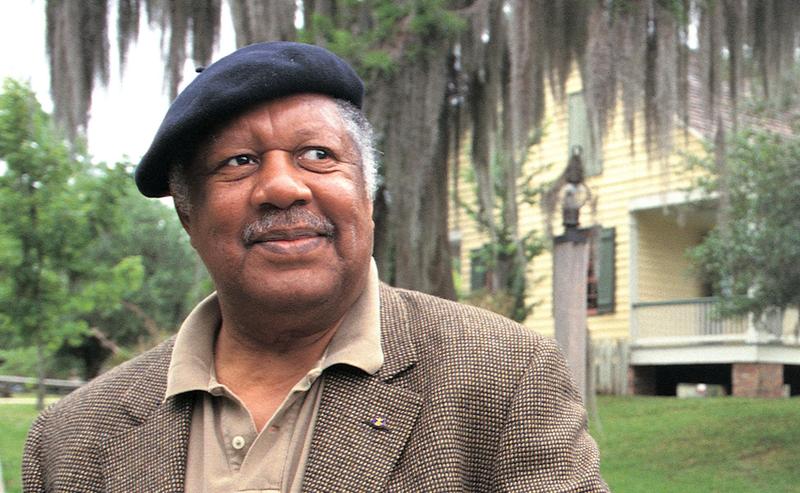
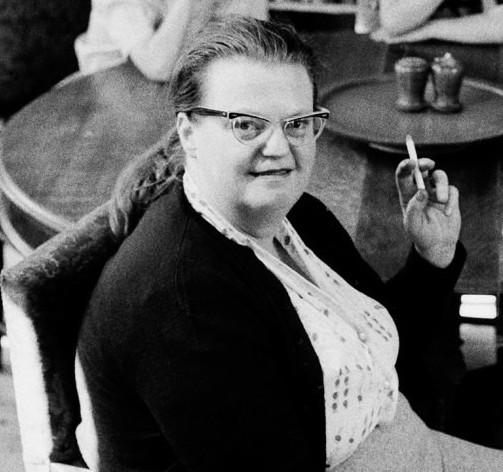

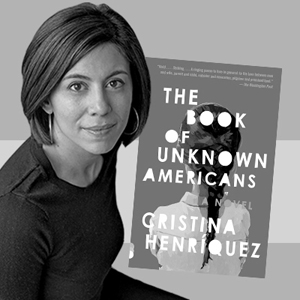





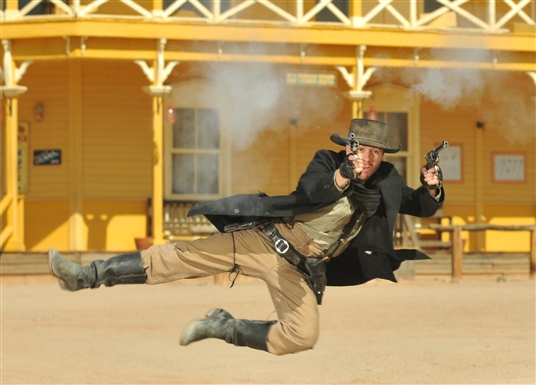


.jpg)

